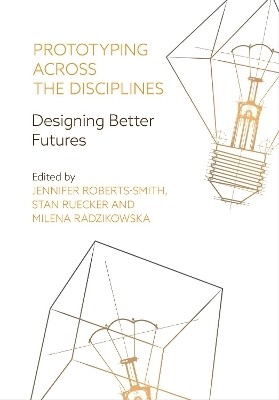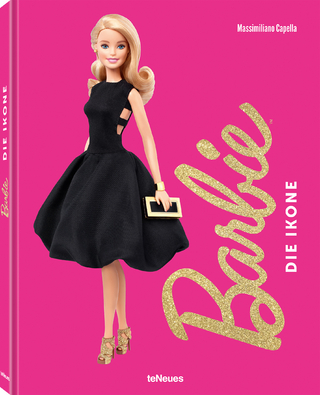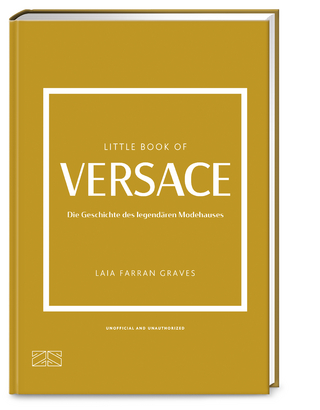
Prototyping across the Disciplines
Intellect Books (Verlag)
978-1-78938-180-1 (ISBN)
If people from different fields are going to work together on projects, then they need to begin to understand each other. They can be separated by the words they use, the ways they work and how they think. However, in many fields there is common ground, in the attempts to create what is sometimes called inventive knowledge. These fields progress not only by understanding increasingly more about what already exists, but by making guesses about possible better futures. The guesses consist of small forays into that future, using strategies that are variously called learning through making, research through design or, more simply, prototyping.
While traditionally associated primarily with industrial design, and more recently with software development, prototyping is now used as an important tool in areas ranging from materials engineering to landscape architecture to the digital humanities. This book collects current theories and methods of prototyping in a dozen disciplines, illustrating them through case studies of actual projects, whether in industry or the classroom.
This edited collection aims to provide a context, a theoretical framework and a set of methodologies for interdisciplinary collaboration in design. Each chapter offers a different disciplinary perspective on prototyping, providing a case study as a point of comparison for identifying commonalities and divergences in current practices. Contributions are from a group of scholars with worldwide experience of working and presenting in design, and who are currently based in Canada, the United States, Chile and Brazil.
This book isn’t just about design across the disciplines, it is about how prototyping works in different disciplines. Prototyping is a crucial part of the design process, and a practice used by creators from all design disciplines, from architects and engineers, to industrial and service designers, to test a concept or process and evaluate an idea.
Much research has been published on prototyping in design; what makes this new book unique is the cross disciplinary nature, showing designers how they can learn from various approaches to improve their skills. Disciplines discussed include post-human design, theatre, tabletop game design, landscape architecture and arts entrepreneurship.
Primarily of interest to design scholars and practitioners with an interest in integrative design. Undergraduates and graduate students in design, HCI (human-computer interaction) and the digital humanities. Textbook potential.
Stan Ruecker, a scholar in information and communication design, is the Anthony J. Petullo professor of design at the University of Illinois. He has been tenured at three different universities: the University of Alberta in the MA in Humanities Computing programme; Illinois Tech in the School of Design (aka the New Bauhaus); University of Illinois School of Design. From 2013–16, he was visiting professor at UNISINOS in Brazil; since 2018, he is visiting professor at the Dalian University of Technology. Since joining the faculty at the University of Illinois, he has been appointed as affiliate professor in the Informatics Program of the iSchool and the Carle College of Medicine. Milena Radzikowska, since 2005, has collaborated on over 30 design research projects that extended anywhere from two to seven years; four of those with budgets in the millions. Her research work is transdisciplinary, marked by a passion to benefit others and informed by fifteen years on teams with researchers from over 30 different fields. She’s worked on large, medium and small, national and international projects, with undergraduate and graduate researchers, industry partners, not-for-profit agencies and scholars. Her work has been iterative and experimental – meant to challenge existing design conventions and explore unique alternatives to complex problems. Jennifer Roberts-Smith (University of Waterloo, co-applicant) is a woman-identified, cis-gendered settler scholar whose interdisciplinary research and creative practice focus on performance and digital media, with particular emphases on design, theatre, history and pedagogy. She has been instrumental in securing the place of performance-informed scholarship in the digital humanities, including in pedagogical game design and the design of justice-oriented digital pedagogical environments. As principal investigator or co-applicant on fourteen funded research projects with budgets totalling $850,000 in the last ten years (in addition to roles as collaborator), Dr Roberts-Smith has been evolving, with her collaborators, a critical feminist approach to research project management. Currently, she directs the qcollaborative and leads the Virtual Reality Development Cluster of the Digital Oral Histories for Reconciliation (DOHR) project. Her work has been supported by SSHRC, MITACS and the Canada Council for the Arts, and recognized with an Ontario Early Researcher Award and a UW Faculty of Arts Outstanding Performance Award.
Introduction
Our goals
What’s ahead
PART 1: QUESTIONING ASSUMPTIONS
1.1 Cosmopolitical interventions: Prototyping inter-species encounters
By Pablo Hermansen and Martin Tironi
1.2 How industrial prototypes behave thru structure, function, and material
By Zhabiz Shafieyoun and Gerry Derksen
1.3 To design is to pretend: Observational modeling and Analysis by children
By Teresa Dobson, Ernesto Peña and Milena Radzikowska
1.4 Prototyping text analysis in the motorcycle shop
By Milena Radzikowska, Alyssa Kelle and Madison Snell
PART 2: PROBLEM SOLVING
2.1 Prototyping with physical-digital interactions: Conceptual models for hacking the constructed world as an inquisitive process
By Juan De La Rosa
2.2 Designing tabletop games with the use of prototypes
By Simone L. Sperhacke and Maurício M. E. S. Bernardes
2.3. Octagonal research globe for prototyping emergent immersive reality experiences
By Lisa E. Mercer and William C. Bullock
2.4 Persist, pivot or punt: The role of prototyping in teams involved in a commercial arts-led innovation programme
By David Goodwin & Jill Tomasson Goodwin
PART 3: DESIGNING DISRUPTION
3.1 Making and appreciating theatre: Lessons in ethical relationality and prototype expansion
By Kathleen Gallagher and Scott Mealey
3.2 Prototyping and the critical practice of landscape architecture
By David L. Hays
3.3 Teaching materials engineering through embodied cognition
By John A. Nychka and Glenn D. Hibbard
3.4 Using prototypes to develop research questions
By Stan Ruecker and Guilherme Englert Corrêa Meyer
Conclusion
1. What we’ve learned
2. Final thoughts
References
| Erscheinungsdatum | 10.05.2021 |
|---|---|
| Zusatzinfo | 32 Plates, color |
| Sprache | englisch |
| Maße | 170 x 244 mm |
| Themenwelt | Kunst / Musik / Theater ► Design / Innenarchitektur / Mode |
| ISBN-10 | 1-78938-180-0 / 1789381800 |
| ISBN-13 | 978-1-78938-180-1 / 9781789381801 |
| Zustand | Neuware |
| Haben Sie eine Frage zum Produkt? |
aus dem Bereich


